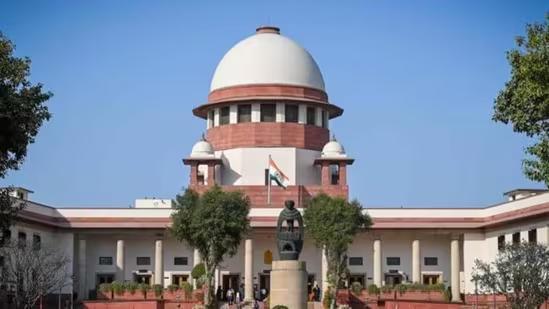
Guv is Super CM if He Can Withhold Assent to Money Bills: TN to SC
The Tamil Nadu government has made a bold statement in the Supreme Court, suggesting that if a Governor can withhold assent to money bills, it would essentially make them the “super Chief Minister”. This remark was made during the hearing of a Presidential Reference on the issue of assent to Bills.
Senior Advocate Abhishek Manu Singhvi, representing the Tamil Nadu government, made this statement while arguing that the Governor should not have the power to withhold assent to money bills. According to Singhvi, the Constitution does not provide for the Governor to be the final arbitrator on a bill.
The Presidential Reference was filed by the Centre, seeking the Supreme Court’s opinion on whether the Governor can withhold assent to a bill if they believe it is against the national interest or violates the Constitution. The Centre’s move was seen as an attempt to challenge the Kerala High Court’s decision, which had held that the Governor cannot withhold assent to a bill passed by the State Assembly.
Singhvi’s remark was made in response to the Centre’s argument that the Governor has the power to withhold assent to a bill if they believe it is against the national interest. The senior advocate argued that this would essentially make the Governor the “super Chief Minister”, as they would have the power to veto a bill passed by the State Assembly.
“We are saying that the Constitution does not say that the last word on a bill would be of the Governor,” Singhvi told the Supreme Court. “If the Governor can withhold assent to a money bill, then it would be akin to saying that the Governor is the super Chief Minister.”
Singhvi’s remark has sparked a debate on the role of the Governor in the Indian constitutional system. While some argue that the Governor should have the power to withhold assent to a bill if they believe it is against the national interest, others argue that this would undermine the democratic process and the authority of the State Assembly.
The Supreme Court has been hearing the Presidential Reference since January 2022, and has reserved its judgment in the matter. The court’s decision is expected to have significant implications for the role of the Governor in the Indian constitutional system.
Background of the Presidential Reference
The Presidential Reference was filed by the Centre in 2020, following the Kerala High Court’s decision in the case of Kerala v. Union of India. In this case, the Kerala High Court had held that the Governor cannot withhold assent to a bill passed by the State Assembly, unless the bill is against the national interest or violates the Constitution.
The Centre had challenged the Kerala High Court’s decision, arguing that the Governor has the power to withhold assent to a bill if they believe it is against the national interest. The Centre’s move was seen as an attempt to challenge the Kerala High Court’s decision and to clarify the role of the Governor in the Indian constitutional system.
Arguments Before the Supreme Court
The Centre had argued before the Supreme Court that the Governor has the power to withhold assent to a bill if they believe it is against the national interest or violates the Constitution. The Centre had relied on Article 74(1) of the Constitution, which provides that the Governor shall give his assent to a bill passed by the State Assembly.
The Centre had also argued that the Governor’s power to withhold assent to a bill is not limited to cases where a bill is against the national interest or violates the Constitution. The Centre had pointed out that the Governor can withhold assent to a bill for any reason, including if they believe it is against the national interest or violates the Constitution.
The Tamil Nadu government, on the other hand, had argued before the Supreme Court that the Governor should not have the power to withhold assent to a bill. The Tamil Nadu government had relied on the Kerala High Court’s decision, which had held that the Governor cannot withhold assent to a bill unless the bill is against the national interest or violates the Constitution.
Conclusion
The Supreme Court’s decision in the Presidential Reference is expected to have significant implications for the role of the Governor in the Indian constitutional system. The court’s decision will clarify the extent of the Governor’s powers and will also impact the relationship between the Governor and the State Assembly.
In the meantime, the remark made by Senior Advocate Abhishek Manu Singhvi has sparked a debate on the role of the Governor in the Indian constitutional system. While some argue that the Governor should have the power to withhold assent to a bill if they believe it is against the national interest, others argue that this would undermine the democratic process and the authority of the State Assembly.
Only time will tell what the Supreme Court’s decision will be on this matter. However, one thing is certain – the court’s decision will have a significant impact on the role of the Governor in the Indian constitutional system.
News Source:






